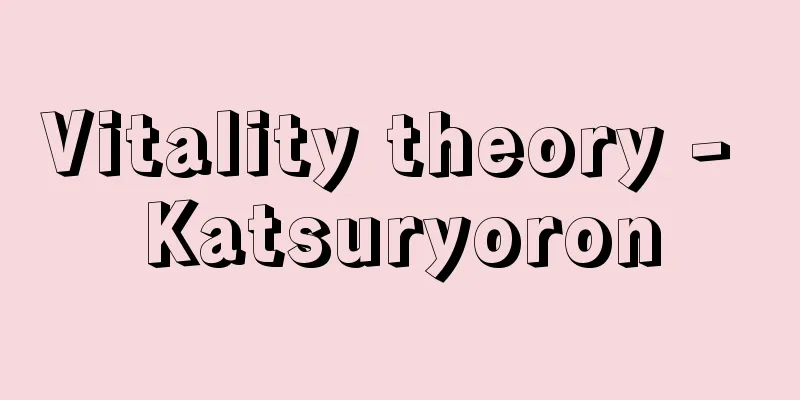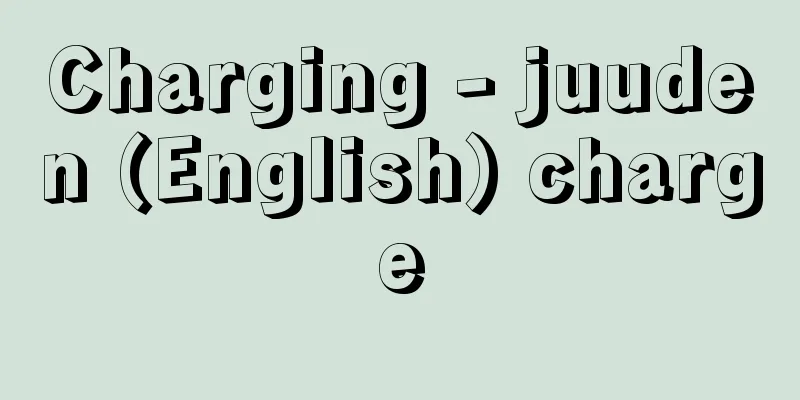Expression of Intention - Ishihyoji

|
It refers to an act of expressing one's intention to produce a certain legal effect, such as an offer or acceptance of a contract, a will, etc. There are acts that produce legal effects by themselves, such as a will, and acts that produce legal effects only when combined with another expression of intention (acceptance of an offer), such as a contract. For an expression of intention to produce the desired effect, it must be possible to realize it, its contents must be definable, it must not be illegal, and it must not violate public order and morals. [Yasuyuki Takahashi] Effect intention/indication actManifestation of intention consists of two elements: the intention to have an effect (the intention to have a certain legal effect, such as the intention to sell one's house) and the act of expression (the act of expressing the intention to have an effect to the outside world), and if either of these is missing, the intention is not manifested. When these two are in conflict, the question arises as to which should be emphasized in determining the legal effect of the intention to have an effect. In the Japanese Civil Code, there are three provisions for cases where the intention to have an effect and the act of expression are in conflict (called a discrepancy between intention and expression, or a lack of intention): mental reservation, false expression, and mistake, but the code takes an eclectic stance, placing emphasis in some cases on the act of expression (expression principle) and in other cases on the intention to have an effect (will principle). [Yasuyuki Takahashi] ReservedAlso known as an independent false representation. Making a false representation of intent while being aware of the discrepancy between what is being expressed and what is being willed (inconsistency between intention and representation). For example, if someone wants to sell something even though they have no intention of doing so, in this case there is no need to protect the person who made the false representation, and taking into consideration the safety of the transaction, the legal effect will be created according to the representation. However, if the other party knows that it is a lie or would have naturally known that it was a lie with ordinary care, no legal effect will be created (Civil Code Article 93). [Yasuyuki Takahashi] MisrepresentationMaking a false representation of intent in collusion with the other party. For example, in a case where one colludes with a friend to sell the land to the friend in order to avoid seizure of one's own land, the sales contract between the parties is invalid (therefore, the land does not become the property of the friend). However, since it is necessary to protect the person who bought the land believing it to be the friend's (a third party acting in good faith), the invalidity of the contract cannot be asserted against this person (Article 94 of the Civil Code). It is also called a collusive false representation in contrast to an independent false representation (mental reservation). [Yasuyuki Takahashi] MistakeAn expression of intention made by the person making the expression of intention due to a mistake. Examples include when someone intends to sell for 1 million yen but mistakenly says 100,000 yen, or when they think that pounds and dollars are the same and say dollars when they should have said pounds. In this case, if the mistake is so significant that it is deemed that they would never have performed such a legal act if they had not made the mistake, the expression of intention will be invalid. However, if the person making the expression of intention was grossly negligent, they cannot claim invalidity on their own (Civil Code Article 95). Furthermore, even if the intention and the manifestation coincide, if the manifestation of intention was made through fraud or duress by another person (called a defective manifestation of intention), the manifestation of intention may be rescinded (Civil Code Article 96, Paragraph 1). However, in cases where the manifestation of intention is due to fraud, rescission cannot be asserted against a third party who entered into the business relationship without knowing that fraud had occurred (Civil Code Article 96, Paragraph 3). [Yasuyuki Takahashi] [Reference items] | | |Source: Shogakukan Encyclopedia Nipponica About Encyclopedia Nipponica Information | Legend |
|
契約の申込みや承諾、遺言(いごん)などのように、一定の法律効果を発生させようと欲してその意思を外部に表す行為をいう。遺言などのようにそれだけで法律効果を生じるものと、契約などのように他の意思表示(申込みに対する承諾)といっしょになって初めて法律効果を生じるものとがある。意思表示が欲したとおりの効力を生じるには、実現が可能なもので、その内容が確定でき、かつそれが違法でなく、公序良俗に反しないことなどが必要である。 [高橋康之] 効果意思・表示行為意思表示は、効果意思(自分の家を売ろうとする意思のように、一定の法律効果を欲する意思)と、表示行為(効果意思を外部に表現する行為)の二つの要素から成り立っており、そのいずれかが欠けるときは意思表示は成立しない。この両者が食い違った場合、どちらに重点を置いてその意思表示の法律上の効果を決めるべきかが問題になる。日本の民法では、効果意思と表示行為とが食い違う場合(意思と表示の不一致、あるいは意思の欠缺(けんけつ)という)として、心裡留保(しんりりゅうほ)、虚偽表示、錯誤(さくご)の三つについて規定しているが、ある場合には表示行為に重きを置き(表示主義)、ある場合には効果意思に重きを置く(意思主義)というように、折衷的な立場をとっている。 [高橋康之] 心裡留保単独虚偽表示ともいう。意欲していることと表現していることの食い違い(意思と表示の不一致)を自分で意識しながら、うその意思表示をすること。たとえば、その気もないのにある物を売りたいというような場合などで、その場合には、うそをいった表意者を保護する必要もないし、取引の安全ということも考えて、表示に従った法律効果を生じさせることとしている。ただし、相手方がうそであることを知っていたり、普通の注意をすれば当然うそであることがわかる場合には法律効果は生じない(民法93条)。 [高橋康之] 虚偽表示相手方と通じて、うその意思表示をすること。たとえば、自分の土地に対する差押えを免れるために、友人と通じてその土地を友人に売ってしまったことにするなどのような場合で、その当事者の間では売買契約は無効である(したがって、その土地は友人の所有にはならない)。しかし、その土地を友人のものだと信じて買った人(善意の第三者)は保護する必要があるので、この人に対してはその無効であることを主張できない(民法94条)。単独虚偽表示(心裡留保)に対して通謀虚偽表示ともいう。 [高橋康之] 錯誤表意者が思い違いをして行った意思表示。100万円で売るつもりで10万円といい誤ったり、ポンドとドルを同じだと思って、ポンドというべきところをドルといった場合などがこれにあたる。この場合、思い違いがなければ、とうていそのような法律行為をしなかったはずだと認められるほど重大な思い違いであれば、意思表示は無効となる。ただし、表意者に大きな不注意があったときは、自ら無効を主張することはできない(民法95条)。 なお、意思と表示とが一致しても、意思表示が他人の詐欺や強迫によってなされたものであるとき(瑕疵(かし)ある意思表示という)は、その意思表示は取り消すことができる(民法96条1項)。ただし、詐欺による場合の取消しは、詐欺が行われたことを知らずに取引関係に入ってきた第三者に対しては取消しを主張することはできない(民法96条3項)。 [高橋康之] [参照項目] | | |出典 小学館 日本大百科全書(ニッポニカ)日本大百科全書(ニッポニカ)について 情報 | 凡例 |
<<: Ishifu (English spelling) I‐Sa‐bu
Recommend
Dance flies
A general term for insects belonging to the family...
preparation
...In English, it is called a preparation. A spec...
Eumenides
Another name for the Erinyes, the Greek goddesses ...
Saussurea gracilis (English spelling) Saussureagracilis
…[Mitsuru Hotta] [Aya Nitta]. … *Some of the term...
Nishiizu [town] - Nishiizu
A town on the west coast of the Izu Peninsula in K...
Demon King - Oniou
Year of birth: Unknown. He was a servant to the So...
Struve, Pëtr Berngardovich
Born: January 26, 1870, Perm [Died] February 26, 1...
Kirkwall
Orkney is the administrative capital of the Orkney...
Eucharistic procession - Seitai Gyoretsu
The term is a translation of German Fronleichnamsp...
Berliner, HA (English spelling) BerlinerHA
…In 1987, he invented the phonograph (later the g...
Kaolinite
Al 4 [Si 4 O 10 ](OH) 8 . Also called sclerite. A...
Glasnost (English spelling)
It means openness. Along with democratization, it ...
Gentiana makinoi (English spelling)
… [Toyokuni Hideo]. … *Some of the terminology th...
Oyamazumi Shrine
This shrine is located on Omishima Island in the S...
Ireland, WH (English spelling) IrelandWH
…To give it authority, the origin and history of ...
![Ochi [town] - Ochi](/upload/images/67cb1eb77a98b.webp)







![Tomigusuku [village] - Tomigusuku](/upload/images/67cc5b00ab61f.webp)
